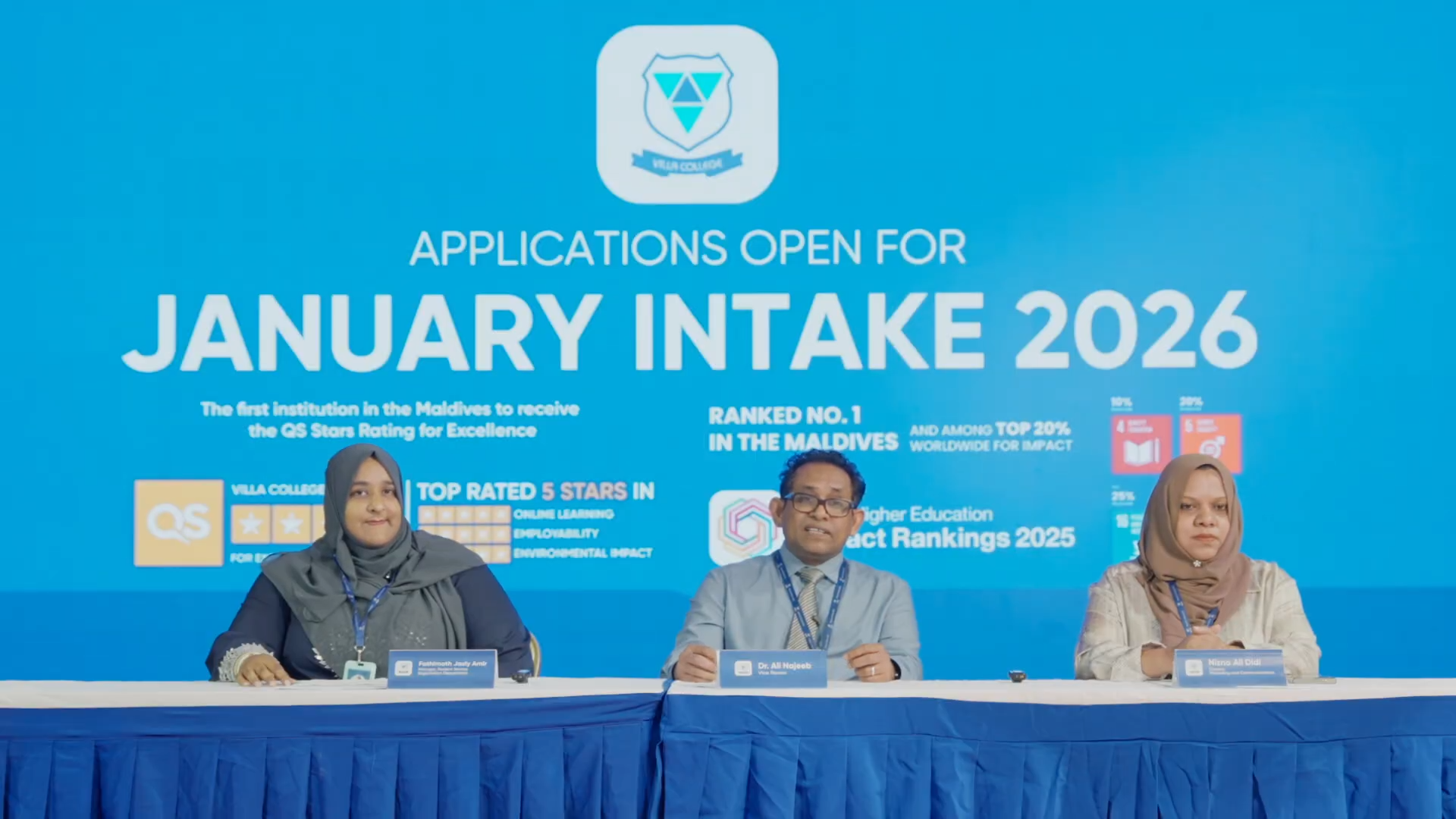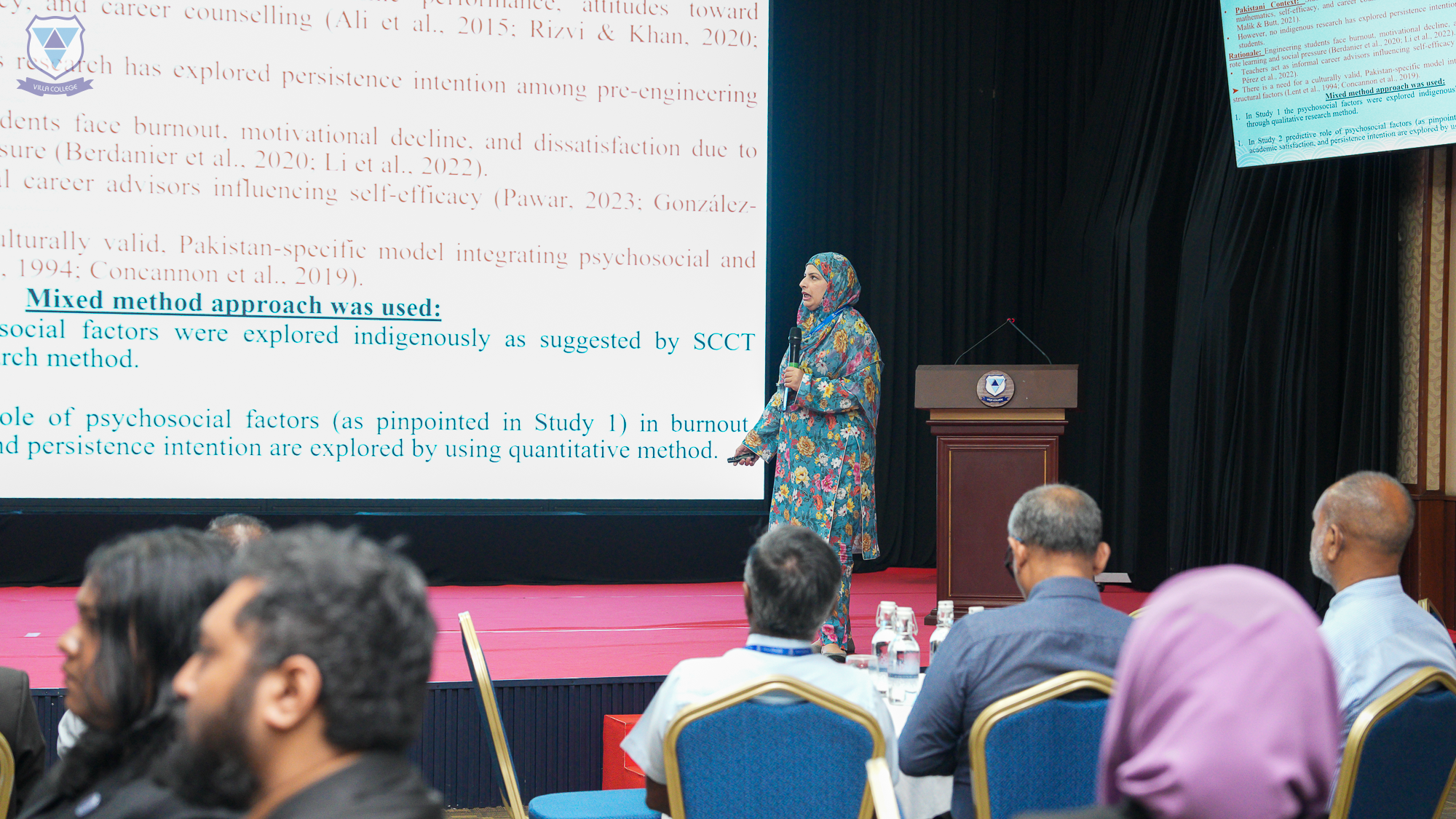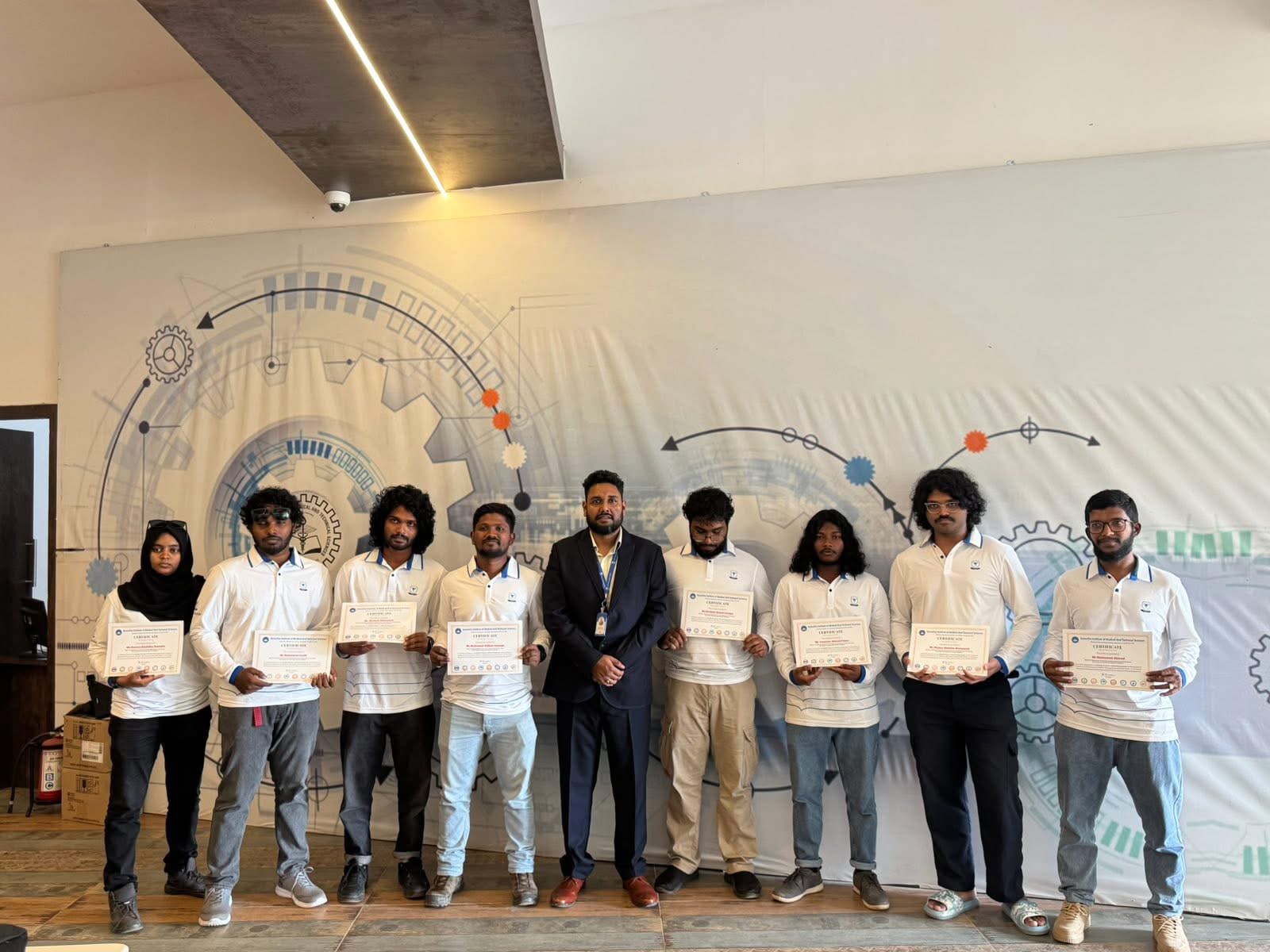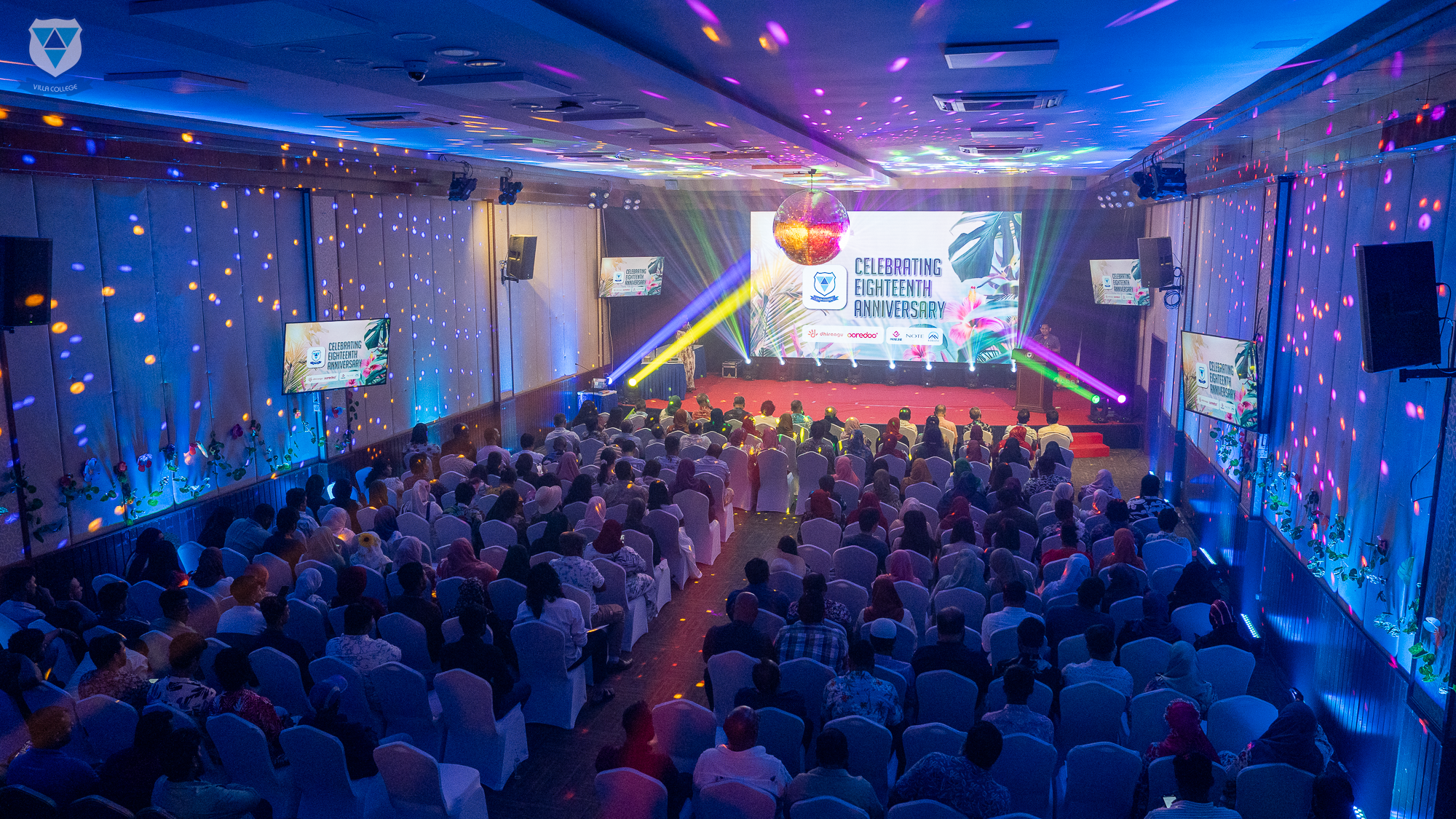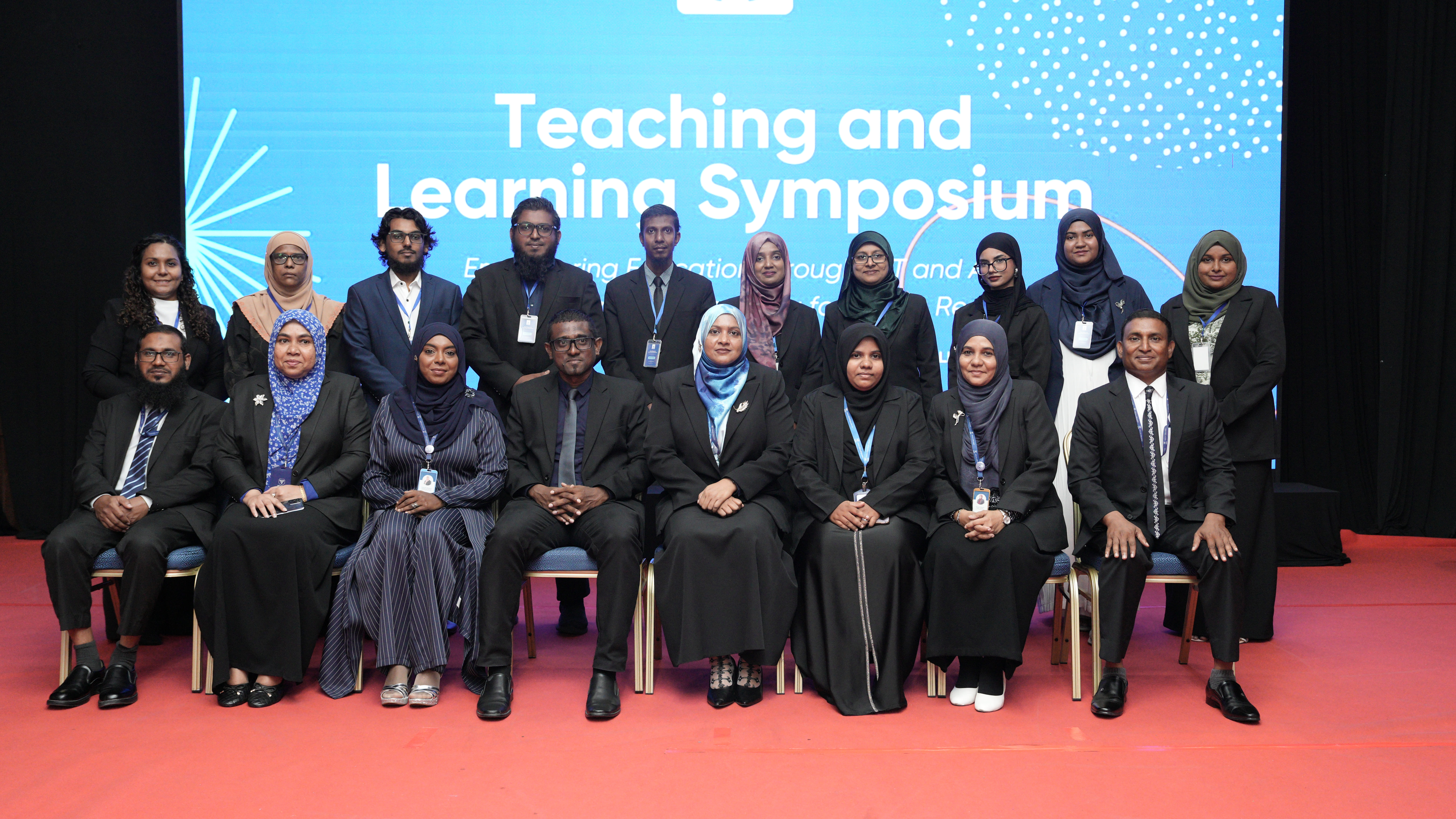
The Teaching and Learning Symposium 2025, organized by the Faculty of Educational Studies (FES) at ¬ť∂Ļ ”∆Ķ, was held under the theme: "Empowering Education through ICT and AI: Innovation in Teaching and Learning for Future Ready Schools". This scholarly event brings together education leaders, researchers, and practitioners to collectively explore transformative approaches in the rapidly evolving technological landscape. The symposium emphasizes addressing critical challenges in education while advancing several United Nations Sustainable Development Goals (SDGs), including SDG 4 (Quality Education), SDG 8 (Decent Work and Economic Growth), SDG 16 (Peace, Justice and Strong Institutions), and SDG 17 (Partnerships for the Goals). Crucially, the event directly supports SDG 4.3.1 by creating infrastructure for interactive and technology-enhanced learning spaces, ensuring that schools are equipped to deliver engaging, collaborative education that prepares students for the future.
The day began with welcome remarks from Abdul Sattar Gasim, Dean of the Faculty of Educational Studies. He highlighted that the primary aim of the symposium is to establish a scholarly platform for students to present and disseminate their research work, which is a testament to ¬ť∂Ļ ”∆Ķ‚Äôs goal of developing independent researchers. Setting a powerful direction for the day, he emphasized the profound responsibility of educators in this rapidly changing technological landscape, stating: "our responsibility as educators is not only to embrace these tools but also to ensure they are used to enhance equity, creativity, and quality in education‚ÄĚ. ¬ť∂Ļ ”∆Ķ was honored to welcome the Chief Guest of the symposium, Dr. Ahmed Mohamed, Minister of State for Education, whose presence reflects his commitment to knowledge and the empowerment of students. Dr. Ahmed Mohamed delivered an address that provided a compelling perspective on the dynamic and ever-evolving role of educators. Highlighting the crucial shift in pedagogical approaches necessitated by rapid technological advancements, Dr. Ahmed Mohamed stated that "the teacher's role becomes more of the facilitator for discovery, rather than the transmission of information‚ÄĚ. He stressed that the greater the incorporation of technology in teaching, the greater the judgment required by teachers on when, for what, for whom, and how to use it, calling this the "new craft that all our teachers must master". Furthermore, he emphasized that teachers must function as both "scientists and artists" in their professional practices: "Scientists in the art of using data and technology research and artists in combining all the diverse different technological tools to advance our teaching and learning process‚ÄĚ.
Transitioning directly from this necessity for adaptation, the symposium heavily explored how technological advances, particularly Artificial Intelligence (AI), are redefining the educator’s role. Dr. Ali Shameem, a global EdTech leader, focused his keynote, "Struggle, Creativity, and AI: The Future of Teaching", on the critical balance between technological capability and human cognitive development. He noted that 2025 is anticipated as the "year of AI agents", where autonomous AI will make decisions and create things without human prompting. Addressing the question of whether powerful AI equates to better learning, Dr. Shameem asserted that "the one who does the thinking is the one who start to learn". He stressed that educators must embrace the philosophy: "No struggle, no growth", clarifying that if AI is performing all the cognitive tasks for users, "then AI is the one learning, not us". Therefore, teachers must intentionally cultivate essential human competencies that machines cannot replicate, such as the ability to ideate, connect, learn, unlearn, and "storytell". He recommended that technology be "AI supported" rather than "AI driven".
Dr. Natthapoj Vincent Trakulphadetkrai, an Associate Professor of Mathematics Education, University of Reading (UK) presented powerful research validating an innovative pedagogical approach: teaching mathematical concepts through storytelling. He defined mathematical stories as narratives that "can help illustrate how mathematical knowledge and skills can be used by characters in the story to help them solve a problem in a meaningful context". His research focused on multiplication, a concept that, though basic, is crucial for developing understanding of advanced concepts like probability and trigonometry. The quasi-experimental study involved Year 4 students (aged 8 to 9) and compared three groups, focusing centrally on the math story writing group, where students created their own short mathematical story picture books. This creative approach, rooted in the theory of constructionism‚ÄĒwhere effective learning occurs when students "project out what you currently understand... by creating a public artifact"‚ÄĒproved highly effective. Quantitative data analysis revealed that students in the math story writing group "outperform their peers on many of those measures", showing significantly higher scores in measures of conceptual understanding, including their ability to visually represent and contextualize the mathematics. This storytelling method is adaptable and can be used with students across a wide age range, from 4 to 16 years old.
A vital panel discussion, titled "Sustaining Education: Finding solutions to Teacher Shortage Challenge", addressed the critical global and local issue of teacher shortages. Panelists identified contributing factors, including high workload, attrition, and the failure to attract good students. Fazna Yoosuf Fariq, Deputy Education Superintendent, pointed out the pervasive negativity surrounding the profession: "there is a story about teachers... low workload, low pay, low payment and then there's no appreciation for teachers' work and there's no career growth". She concluded that this "negative story about teachers has led to the younger generation not being attracted to this profession". Mr. Thoha Saleem, Principal of Ghiyasuddin International School, addressed necessary policy shifts, emphasizing that teachers need competitive remuneration. He stated that the compensation package "has to be something that we respect, a profession that we respect, not by giving lip service to it, but meaningfully". He suggested that teacher compensation packages should be among the "fourth or fifth best compensation packages offered in the country". Dr. Aminath Shafiya Adam, Dean, Centre for Research and Publications, Islamic University of Maldives recommended drawing inspiration from Finland’s three pillars: "research, trust, well-being". She specifically advocated for building confidence in educators: "Trust the teachers. Trust that they have the capability" to bring changes. Ultimately, the panelists agreed on the profound societal value of teaching. Mr. Thoha Saleem articulated this value, stating: "for me to become a teacher is to bring a transformational change in the society", a sentiment Dr. Shafiya reinforced, stating that teachers "are the people actually who bring changes to society".
